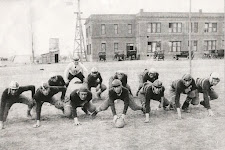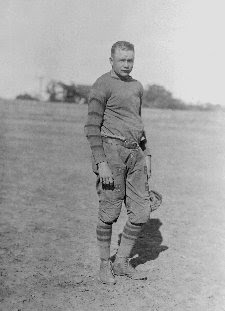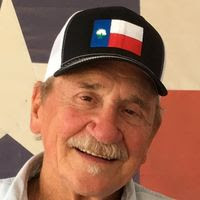 |
| The sign, stone tower, and laundromat mark the location of the new RV Park. |
For reservations or more information, phone 325-236-4020. We welcome this new business to Roscoe and wish it success and good luck!
--o--
PLOWGIRLS LOSE TO ANSON, BEAT HAWLEY
 |
| The Plowgirls in Anson on Friday. (Photo by Tiffany Waddell.) |
Anson 17 28 29 39
Plowgirls 4 15 20 28
Scoring: Samantha Ortega 14, Magali Casas 5, Olivia Saddler 4, Selena Perez 4, Danielle Dean 2.
Plowgirls 10 20 33 45
Hawley 2 23 29 39
Scoring: Saddler 15, Ortega 11, Mia Herrera 5, Sanchez 4, Dean 4, Casas 2, Perez 2, Alyssa Chavez 2.
Next up for the Plowgirls and Plowboys are the Pied Pipers in Hamlin Friday evening.
--o--
PLOWBOYS LOSE TO ANSON, HAWLEY
 |
| Plowboys Luis Villa (11) and Isaiah Gonzales (13) on defense. (Photo by Tiffany Waddell) |
Anson 4 13 21 43
Plowboys 7 16 24 28
Scoring: Javier Leanos 12, Roman Acuña 7, Anthony Ortegon 4, Kevin Lavalais 2, Luis Villa 2, Cutter Davila 1.
Then last night they suffered another loss, this time to Hawley, 59-50.
Hawley 18 30 50 59
Plowboys 6 17 31 50
Scoring: Leanos 23, Lavalais 14, Aguayo 4, Villa 4, Isaiah Gonzales 2, Vincent Pantoja 2.
--o--
ROSCOE’S EARLIEST HISTORY: THE 1881 KATULA TRAIN WRECK
 |
| A T&P engine of the type used in 1881. The car behind it was known as the tender. |
Up until 1881, the land on which Roscoe now stands was open grass prairie. It was occasionally traversed by the Plains Indians—mainly Comanche, but also Apache and Kiowa—in their pursuit of the buffalo that roamed through the area. In the 1870s a few scattered buffalo hunters, cowboys, and U. S. Cavalry troops came through to kill buffalo, introduce cattle, and drive the nomadic Indian tribes northward into the Indian Territory we now know as Oklahoma.
Then in early 1881, the Texas & Pacific Railway, in its quest to build a southern rail route that would connect the east coast to the west, extended its track westward from Weatherford, previously the end of the line. Along the way, it built water stops about every ten miles so its steam engines would have the water necessary for them to run. Each stop was given a name in the hopes that it would eventually become a town. From Abilene west to Colorado (now Colorado City) were Tebo (now Tye), Merkel, Trent, Eskota, Sweetwater, Katula, and Loraine. The track reached the tent city of Sweetwater in early March 1881, the water stop of Katula in mid to late March, and the budding community of Colorado [City] in early April. At the time Katula, about a mile west of present-day downtown Roscoe, had no settlers at all.
Less than a month after the line reached Colorado, there were two major train wrecks in Nolan County, both with fatalities and both on the same day from washouts caused by a heavy rainstorm. The first was on Sweetwater Creek, just east of Sweetwater, and the second was on Cottonwood Creek, three miles west of Katula. Two men were killed in the Sweetwater Creek accident, and three were killed and another seriously injured in the Cottonwood Creek wreck. Details were provided in the following articles from the Dallas Herald.
(from the Dallas Herald, May 5, 1881)
Weatherford
Weatherford
Special to the Herald.
Weatherford, May 3.—Two terrible wrecks occurred on the western extension of the Brazos division of the Texas & Pacific road this morning. The first occurred at 7:10 a. m., at Sweetwater. The bridge over Sweetwater creek had become weakened by a washout, caused by the heavy rain yesterday, and the locomotive of a west-bound freight train, John Hornest conductor, plunged into the stream. Conductor Hornest was slightly injured. Engineer Sanders, of Dallas, received injuries from the effects of which he died at 10:30 a. m. The fireman, named Amos Donley, of Dallas, was killed outright. The head brakeman of the train, name not yet learned, received injuries that may prove fatal.
The second wreck occurred at 8:10 a. m. at a small stream [i.e., Cottonwood Creek] three miles west of Katula occasioned by a washout similar to that of Sweetwater. The locomotive went crushing through a bridge structure, carrying Engineer Frank Lones, his head brakeman (name not known) and Mr. J. E. Henderson, the telegraph line contractor, of Dallas, with it. The engineer and brakeman are reported killed, and Mr Henderson was seriously, but not dangerously, injured. The conductor, H. C. Mills, was in the caboose at the time and escaped unhurt. Information of the wrecks were sent to Dallas and this point, and assistants ordered to the scene of each. Colonel D. E. Grove, division superintendent, passed west to-night en route to Sweetwater. Coffins were ordered from Weatherford and Dallas for the dead, and the bodies will be taken to Dallas to-morrow. The wrecks occurred in the sparsely settled section of west Texas, and assistance was difficult to get. A train was ordered from the west end of the road to the Katula wreck, but it encountered a long washout west of it, and up to to-night, it had not reached its destination. Full details of the terrible occurrences can not be gotten this evening.
ANOTHER ACCOUNT.
Special to the Herald.
Colorado, May 3.—The wreck, which occurred eighteen miles east of Colorado this morning at 7 o’clock, was a fatal affair. There were four men on the engine, all of whom were killed but one, Mr. J. E. Henderson, of the firm of Henderson & Elser, contractors for telegraph for the front. His foot and lower part of leg was caught between the end of the boiler and a large timber, and he was buried in water up to his shoulders. He remained in that condition twelve hours and was apprehensive of drowning, but held up like a true man. He smoked, ate, and drank until he was removed from the wreck. The dead are Frank Lonis, engineer, Albert Lonis, fireman, and James Layden, brakeman. The body of the latter has not been found.
--o--
 |
| The trestle over Cottonwood Creek today three miles west of town. This is the site where the three men died in 1881. |
(from the May 12, 1881, issue of The Dallas Herald)
THE TEXAS & PACIFIC WRECKS
THE TEXAS & PACIFIC WRECKS
The dead of the Katula wreck arrived here on the 2:30 east bound passenger train yesterday, and were put off at the Union depot where a large crowd had gathered attracted by curiosity to see and hear what they could concerning the terrible wrecks, that ushered five souls into eternity. The dead bodies of M. B. Saunders, engineer, and Billy Dye, the fireman, who were killed in the Sweetwater wreck a few miles east of Katula, were taken charge of Wednesday, the former being shipped to Nevada station, Iowa, and the latter to Fort Worth for interment.
The dead from the Katula wreck were in plain pine boxes, and on arriving here the bodies were taken charge of by undertaker Smith, properly attired for burial and placed in neat coffins—the two Lonis brothers, Frank, the engineer, and Albert, the fireman, for shipment to Knoxville, Tennessee, their old home, and that of W. Layton, the brakeman, was interred in the Trinity cemetery at this place. The Lonis brothers came of a good family and were known by a number of Tennesseans of this city, while they were great favorites with the railroad men. Layton was very popular and made friends of all with whom he came in contact. Mr. J. E. Henderson of the firm of Henderson & Elser, who have the contract for furnishing and putting up telegraph poles along the Texas & Pacific extension, who was seriously injured in this wreck, came in on the same train, and was placed in a carriage and driven to the residence of Colonel John F. Caldwell, at the corner of Akard avenue and Jackson street, where he is being attended by Dr. Thruston, who dressed his wounds, etc. His injuries are of a serious though not fatal nature. His worst injury is a large and ugly burn on the lower part of his right leg, the effects of the escaping steam from the engine. He has a few slight bruises about the head.
THE WRECK
Occurred about 5 o’clock Tuesday morning. The train, which consisted of four or five cars of iron and other construction material and a caboose, had stopped some distance east of Katula, laying up until daylight for fear there might be some washouts on the road. At daylight the trip was resumed. Frank Lonis, the engineer, Albert, the fireman, Layton, brakeman, and Mr. Henderson were all in the cab. The others aboard the train, among the number Mr. William Leslie of this city, were in the rear part of the train in the caboose. The train was proceeding westward at ordinary speed when the trestle, where the accident occurred, which is about five feet high, was reached. This trestle is at a low, flat point on the line and there was some three feet of water, occasioned by the rains of the previous day.
When the train struck the trestle, it tottered under the heavy weight and the heavy timbers gave way like so many reeds, precipitating the engine tender and two cars of iron into the water. So sudden was it that it was impossible for any of the four men in the cab to jump for their lives, and they all went down in the wreck—three out of four to death—Mr. Henderson being the only survivor. Frank Lonis, the engineer, lived for several hours and then died. He was taken to the caboose, and on examination it was found that he was frightfully torn and bruised about the breast and stomach. He would now and then exclaim, “Oh, where is my poor brother?” Once he said, “Sell it and send the money to mother.” What he had reference to no one knows.
All this time Mr. Henderson, who had been caught between the engine and the tender, was struggling in intense agony trying to keep his head above the rapidly rising water. His leg was wedged in tight and the scalding water and steam from the engine was cooking the very flesh of his leg. By a great effort he managed to get the use of his left leg, and by propping himself up by resting his hands he managed to keep his head above water. Across his body was a bar of railroad iron, and beneath him were several more and the dead bodies of Albert Lonis and Layton. He remained in this perilous and uncomfortable condition for nearly twelve hours, suffering torture first from the burns and bruises, which were succeeded by a terrible sensation of cold. All efforts to rescue him until six o’clock that evening proved futile. A messenger was sent to Coleman’s camp several miles distant and a force of men summoned to extricate him, and by prying off the board of the tender he was at last released in a very exhausted condition. While he was pinned down in the water the stream rose four inches, and he as well as those who stood looking powerless to help him, feared that he would drown. His sensations were terrible. After the intense pain came numbness and all sense of feeling was gone. He had plenty of time to think of his condition, and made up his mind that his end had come, though he still entertained some hopes of being rescued.
Frank Lonis, the engineer, was knocked a distance of some twenty feet from the engine, by the large water tank on top of the tender which tore off the cab. The escape of Mr. Henderson from death is almost miraculous. After his arrival last evening he was visited by a large number of lady and gentleman friends. At ten o’clock last evening he was resting easy.
--o--
WEATHER REPORT: STILL COLD
Temperatures continued to be frigid this past week. The only low above freezing came on Sunday morning, and that was only 33°F. The low Thursday morning was only 16°, and that was with strong breezes that made it feel even colder. Highs were also generally colder than normal. Sunday’s 61° seemed like an aberration after enduring highs in the thirties for the previous four days.
The outlook, however, is for warmer weather and more sunshine as the weekend approaches. Today’s high should be only in the upper thirties with light drizzle, but tomorrow’s will be in the mid-fifties, and the weekend should see sunny skies and temperatures rising into the high fifties and low sixties.
Unfortunately, there is no precipitation to speak of in the forecast.
--o--









No comments:
Post a Comment